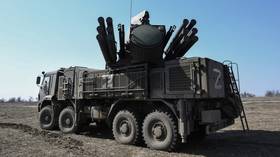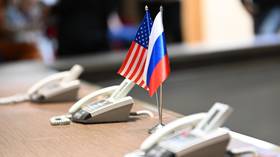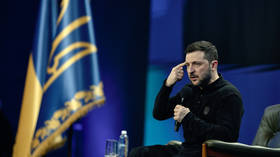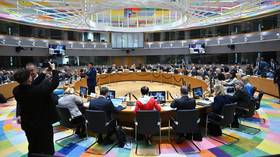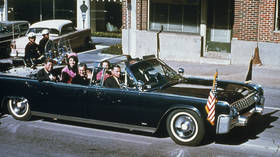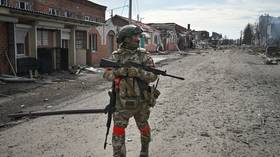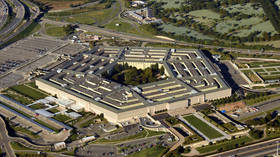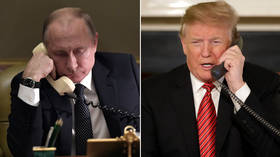Stalin-Hitler pact commemorated
Seventy years ago, on August 23, 1939, the Soviet Union and Nazi Germany signed the Molotov-Ribbentrop pact, an agreement which had a huge impact on the history of the 20th century.
Some say it managed to postpone fighting between the Soviet Union and the Nazis. But even seven decades later, the document is still fiercely argued about.
It was a late summer night in 1939. World War II was then no more than a possibility, although a palpable and frightening one.
In the Kremlin, the lack of sleep was overcome by a surge of adrenalin. The foreign ministers of the Soviet Union and Germany had just signed what would become one of the most divisive agreements of the 20th century.
The Soviet foreign minister, Vyacheslav Molotov, knew very well what it’s like to be between a rock and a hard place. For months, he fruitlessly tried to forge an alliance with Britain and France.
But instead, in August 1939, his signature appeared under a non-aggression pact with Germany. His grandson, Vyacheslav Nikonov, says Molotov never regretted the decision.
"Of course, Moscow preferred to have broader arrangements with Western democracies, rather than Germany,” Nikonov told RT. “He never regretted afterward that he signed that non-aggression pact, which he considered to be of utmost importance. He also said more than once that without the pact, we would probably have fought a war immediately and lost it."
Seen as a compromise with destiny in the Soviet Union, in the West the Molotov-Ribbentrop pact is often described as a deal with the devil. In addition to the pact, Moscow and Berlin also signed a secret protocol that divided Eastern Europe into German and Soviet spheres of influence.
"The idea of this line of division of interests was the line 'where the German forces are going to stop.’” Nikonov said. “Are they going to stop at Warsaw or Minsk or Moscow, maybe Vladivostok?”
“With or without the pact, Hitler would attack Poland,” he continued. “But for the Soviet Union, the problem was whether to go to war immediately when it was not prepared, or to try to win some time and actually to get to the line where Germans would stop.”
Necessity may know no laws, but it’s no stranger to blame. Western historians have argued that the pact was the last thing needed to set Hitler’s death machine in motion, with German troops invading Poland just a week after the signing ceremony. Soviet soldiers followed suit two weeks later.
''In 1939, Hitler from one side and Stalin from the other turned Europe into a chess board,” said Alexander Vasilievs, speaking at the Baltic Forum. “The Czech Republic, Poland and the Baltic states paid the highest price for the game.”
The allegations of a “CommuNazi conspiracy” are not new. Soon after the end of the war, the U.S. State Department published a collection of documents alleging close ties between Nazi Germany and the Soviet Union. Joseph Stalin responded with a book titled “Falsifiers of History.”
When the manuscript was first presented to Stalin in February 1948, it was titled “Reply to Slanderers.” But the Soviet leader was not the kind of person who’d be content with just responding to allegations. Instead, he accused the West of conspiring against the Soviet Union while playing a double game with Hitler.
Less than a year before the Soviet Union and Germany signed the pact, France and Britain let Hitler partition Czechoslovakia, also in the hopes of averting war. And like Stalin, they were proven wrong.



